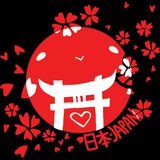Compliments 🌸
1.いいね!Ii ne! いいですね! Ii desu ne!= Good!, Nice!
2.すごい!Sugoi! すごいですね! Sugoi desu ne! = Great!
3.すばらしい!Subarashii! すばらしいですね! Subarashii desu ne! = Wonderful!
4.じょうず!Jouzu! じょうずですね! Jouzu desu ne! = Good!, Skillful!
5.すてき!Suteki! すてきですね! Suteki desu ne! = Lovely! Fantastic!
6.かっこいい!Kakko ii! かっこいいですね! Kakko ii desu ne! = Cool!
1.いいね!Ii ne! いいですね! Ii desu ne!= Good!, Nice!
2.すごい!Sugoi! すごいですね! Sugoi desu ne! = Great!
3.すばらしい!Subarashii! すばらしいですね! Subarashii desu ne! = Wonderful!
4.じょうず!Jouzu! じょうずですね! Jouzu desu ne! = Good!, Skillful!
5.すてき!Suteki! すてきですね! Suteki desu ne! = Lovely! Fantastic!
6.かっこいい!Kakko ii! かっこいいですね! Kakko ii desu ne! = Cool!
Counters ( Part -1)
1. ~人 ...nin (people)
2. ~つ ...tsu (for almost all, up to 10)
3. ~個 ...ko (small object)
4. ~本 ..hon/pon/bon (long object)
5. ~枚 ...mai (thin object)
6. ~番 ...ban (No.)
7 . ~回 ...kai (times)
8. ~階 ...kai (story; floor)
9. ~度 ...do (frequency; degree; temperature, angle)
10. ~杯 ...hai/pai/bai (cap of ...; glass of ...)
Example of 1st = 四人(yo-nin) four people.
1. ~人 ...nin (people)
2. ~つ ...tsu (for almost all, up to 10)
3. ~個 ...ko (small object)
4. ~本 ..hon/pon/bon (long object)
5. ~枚 ...mai (thin object)
6. ~番 ...ban (No.)
7 . ~回 ...kai (times)
8. ~階 ...kai (story; floor)
9. ~度 ...do (frequency; degree; temperature, angle)
10. ~杯 ...hai/pai/bai (cap of ...; glass of ...)
Example of 1st = 四人(yo-nin) four people.
VOCABULARY N5
1.面白い (おもしろい): interesting
EX:面白いシーンが撮れました!
(omoshiroi shiin ga toremashita.)
I filmed a pretty interesting scene!
2.嬉しい (うれしい): happy
なんか嬉しすぎて顔のニヤニヤが止まらない.
(nanka ureshisugite kao no niyaniya ga tomaranai.)
I’m so happy I can’t stop smiling.
3.大人しい (おとなしい): quiet
大人しい子が怒ると怖い.
(otonashii ko ga okoru to kowai.)
They say quiet kids are scary when they get mad.
4.悲しい (かなしい): sad
いまでも時々、とっても悲しくなるよ.
(imademo tokidoki, tottemo kanashiku naru yo.)
I still feel very sad about it sometimes.
5.眠い (ねむい): sleepy
眠くなったから、顔を洗いに行った.
(nemukunatta kara, kao o arai ni itta.)
I felt sleepy so I went to wash my face.
1.面白い (おもしろい): interesting
EX:面白いシーンが撮れました!
(omoshiroi shiin ga toremashita.)
I filmed a pretty interesting scene!
2.嬉しい (うれしい): happy
なんか嬉しすぎて顔のニヤニヤが止まらない.
(nanka ureshisugite kao no niyaniya ga tomaranai.)
I’m so happy I can’t stop smiling.
3.大人しい (おとなしい): quiet
大人しい子が怒ると怖い.
(otonashii ko ga okoru to kowai.)
They say quiet kids are scary when they get mad.
4.悲しい (かなしい): sad
いまでも時々、とっても悲しくなるよ.
(imademo tokidoki, tottemo kanashiku naru yo.)
I still feel very sad about it sometimes.
5.眠い (ねむい): sleepy
眠くなったから、顔を洗いに行った.
(nemukunatta kara, kao o arai ni itta.)
I felt sleepy so I went to wash my face.
Season -
--‐--------‐-----------
春 はる haru = spring 🌸
夏 なつ natsu= summer ☀️
秋 あき aki = autumn🍁
冬 ふゆ fuyu = winter❄
--‐--------‐-----------
春 はる haru = spring 🌸
夏 なつ natsu= summer ☀️
秋 あき aki = autumn🍁
冬 ふゆ fuyu = winter❄
Vocab with example:
1) 忘れる (わすれる): to forget
Ex:とにかくこのことは早く忘れて寝ちまおう。
(tonikaku kono koto wa hayaku wasurete nechimaou.)
Anyway, let’s forget about this and go to bed.
2) 開ける ( あける ): to open
Ex:ドアを開ける前にノックぐらいし ろよ.
(doa o akeru mae ni nokku gurai shiro yo.)
You should at least knock before opening the door.
3) 答える (こたえる): to answer
Ex: 答えたくなかったら答えないでください.
(kotaetakunakattara kotaenaide kudasai.)
Please don’t answer if you don’t want to.
1) 忘れる (わすれる): to forget
Ex:とにかくこのことは早く忘れて寝ちまおう。
(tonikaku kono koto wa hayaku wasurete nechimaou.)
Anyway, let’s forget about this and go to bed.
2) 開ける ( あける ): to open
Ex:ドアを開ける前にノックぐらいし ろよ.
(doa o akeru mae ni nokku gurai shiro yo.)
You should at least knock before opening the door.
3) 答える (こたえる): to answer
Ex: 答えたくなかったら答えないでください.
(kotaetakunakattara kotaenaide kudasai.)
Please don’t answer if you don’t want to.
New words:🌼
春 (haru): spring
夏 (natsu): summer
秋 (aki): autumn, fall
冬 (fuyu): winter
天気 (tenki): weather
気分 (kibun): feeling, mood
気温 (kion): atmospheric temperature
季節 (kisetsu): season
春 (haru): spring
夏 (natsu): summer
秋 (aki): autumn, fall
冬 (fuyu): winter
天気 (tenki): weather
気分 (kibun): feeling, mood
気温 (kion): atmospheric temperature
季節 (kisetsu): season
FIVE VERBS PART-1
1.みます mimasu = watch, see, look
Ex:まいばん うちで ニュースを みます。
(Maiban uchi de nyuusu o mimasu.)
2. ききます kikimasu = listen, hear, ask
Ex:でんしゃの なかで おんがくを ききます。
(Densha no naka de ongaku o kikimasu.)
3. たべます tabemasu = eat
Ex:かいしゃの ちかくで おそばを たべました。
(Kaisha no chikaku de osoba o tabemashita.)
4. のみます nomimasu = drink
Ex:まいあさ かいしゃで コーヒーを のみます。
(Maiasa kaisha de koohii o nomimasu.)
5. よみます yomimasu = read
Ex:でんしゃの なかで ニュースを よみます。
(Densha no naka de nyuusu o yomimasu.)
1.みます mimasu = watch, see, look
Ex:まいばん うちで ニュースを みます。
(Maiban uchi de nyuusu o mimasu.)
2. ききます kikimasu = listen, hear, ask
Ex:でんしゃの なかで おんがくを ききます。
(Densha no naka de ongaku o kikimasu.)
3. たべます tabemasu = eat
Ex:かいしゃの ちかくで おそばを たべました。
(Kaisha no chikaku de osoba o tabemashita.)
4. のみます nomimasu = drink
Ex:まいあさ かいしゃで コーヒーを のみます。
(Maiasa kaisha de koohii o nomimasu.)
5. よみます yomimasu = read
Ex:でんしゃの なかで ニュースを よみます。
(Densha no naka de nyuusu o yomimasu.)
